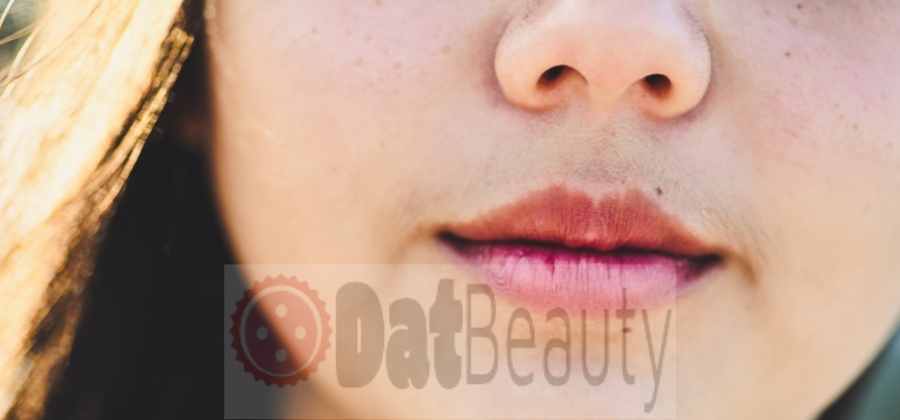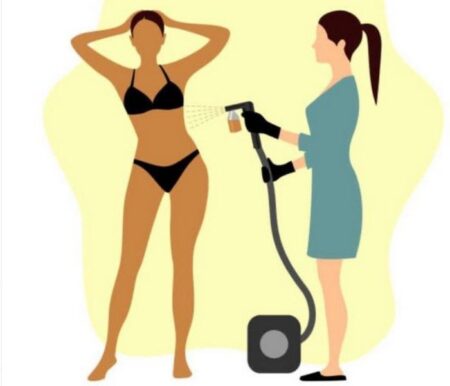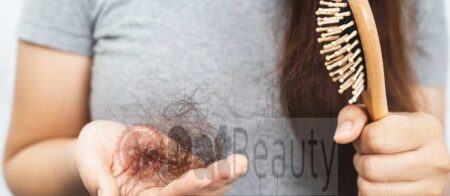Most menopausal women will say that the facial hair growth is quickly and most of them end up shaving it. If you’re one of those women who experience this, then you understand how inconvenient this could be.
A lot of women can’t seem to solve their problem with growing facial hair and they thought it has nothing to do with the reasons why their skin area is not smooth and spotless like before.
The truth is; there are many reasons for this condition happening – you might not know some of them – let’s check it out below:
Facial hair begins as peach fuzz
Most people don’t realize that the little bit of soft downy hair on your face doesn’t just pop up quickly overnight. Before those strands become visible to the naked eye, they start out very small and barely noticeable.
During puberty, hormones called androgen’s cause those tiny vellus hair to grow thicker, longer and darker until they eventually turn into terminal hair. Women have just as much of these androgen hormones as men do, it’s just that the hair on a woman’s head is typically much finer than the hair on a man’s face.
Hormonal changes cause facial hair growth
Just as pregnancy and menopause can trigger changes in a woman’s hormone levels, so can certain medications. If you’ve recently started taking medication for acne, for example, that could be contributing to your facial hair growth.
Likewise, birth control pills and other hormone-based contraceptives can cause women to grow facial hair. The change in your hormones levels can also be the reason why you’re experiencing this problem.
Sometimes, it’s caused by underlying health conditions
Doctors aren’t sure about what causes poly cystic ovary syndrome (PCOS) but suspect that it may be due to a combination of defective eggs and hormone problems.
According to doctors, as many as 5 million American women may have PCOS and as many as 50 percent of them don’t even know they have it. Women with PCOS typically have very small cysts scattered throughout their ovaries and often experience symptoms such as infertility, pelvic pain and excess hair growth on the face and body.
If you think that one of your persistent hair growth problems might be PCOS, you should see your doctor for diagnosis and treatment.
You might also be interested in Benefits of waxing over shaving
Stress can cause hair growth
It’s not just women’s hormones that go haywire during times of stress – their adrenal glands do too. These small glands, located just above the kidneys, are responsible for secreting a number of hormones in response to stress, including cortisol and adrenaline.
One of the side effects of increased cortisol levels is an increase in the production of androgen. Androgen’s are the hormones that trigger hair growth, which is why many people find that they get more hair on their head when they’re under a lot of stress.
You can’t stop it but you can disguise it
Unfortunately, there’s not much you can do to stop facial hair growth. However, there are a few ways you can disguise it.
If your hair is light in color, you can try using a tinted wax or cream to cover it up. If your hair is darker, consider using a depilatory cream or hair removal laser treatments to get rid of it. You can also try shaving, but be sure to use a sharp razor and plenty of moisturizing cream to help reduce the risk of irritation.
Whatever method you choose, be patient and take your time – it may take a few tries before you find the solution that works best for you.
Can i get rid of facial hair permanent?
How to remove facial hair permanently? How can I get rid of my facial hair for good? – These are common questions that everyone is asking, but unfortunately no one has a clear answer. Although there are some creams, laser treatments and other options available to women who want to remove their facial hair forever. It’s pretty complicated and expensive to maintain a complete permanent removal, which means you’ll have spent a lot of money over time if you use those kinds of treatments on a regular basis.
There is one possible solution that offers a more long-term solution to this problem, and that is electrolysis. This method uses an electric current to destroy the hair follicle, preventing the hair from growing back again. It does require multiple sessions and can be costly, but it is a more permanent solution than any other currently available. If you are considering electrolysis to permanently remove your facial hair, it is important to find a qualified and experienced practitioner to perform the treatment.
Self-treatment with home electrolysis kits is not recommended, as these devices are often ineffective and can cause skin irritation or scarring. If you do decide to go ahead with home electrolysis treatment, be sure to follow the manufacturer’s instructions carefully.











